Mastering American slang is essential for anyone looking to become a part of casual conversation like a native. Slang adds color, personality, and authenticity to language, making it more relatable and fun. Whether you’re learning English as a second language, planning to visit the U.S., or simply fascinated by American culture, this article will help you understand and use 110 of the most popular slang words and phrases.
What Is American Slang?
Slang refers to informal words and expressions that are often specific to a particular group, region, or culture. In the U.S., slang evolves constantly, influenced by pop culture, music, social media, and regional dialects. From terms like “lit” to “no cap,” these expressions reflect the dynamic nature of American English.
General American Slang Words
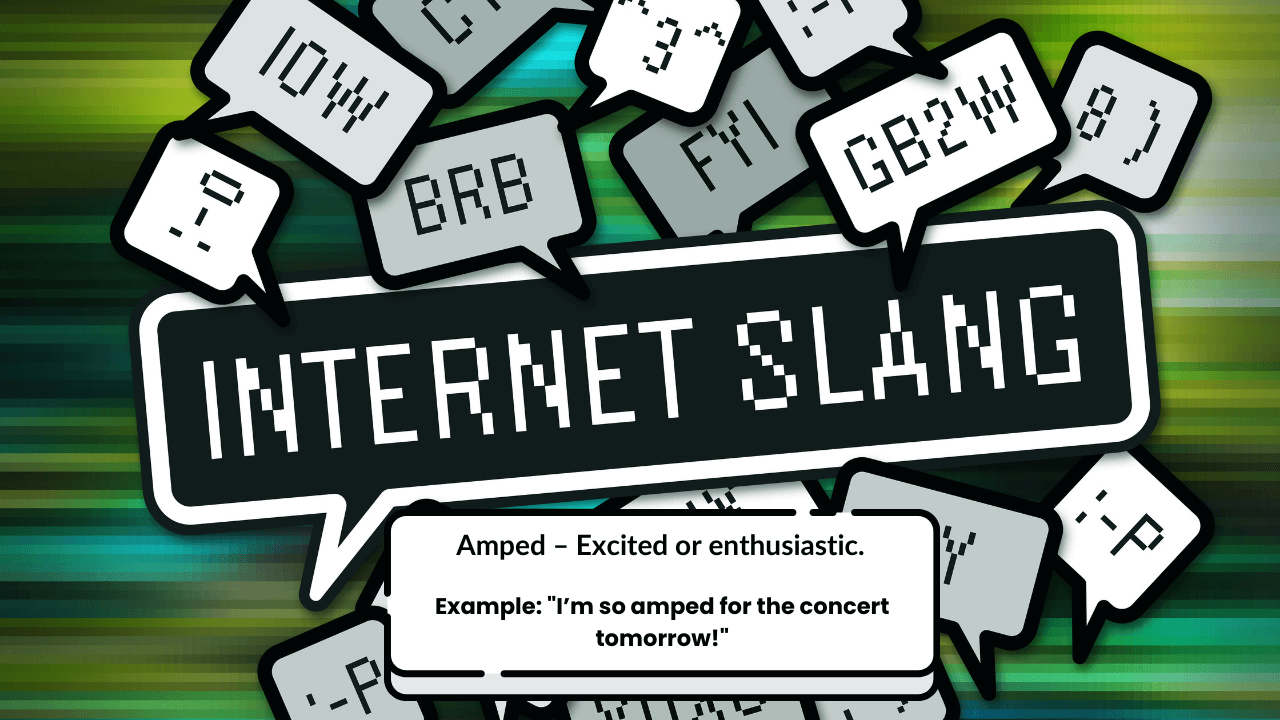
Here’s a list of commonly used American slang words that you’re likely to hear in everyday conversations:
- Ace – Excellent or very good.
- Example: “She aced her exam with flying colors!”
- Ain’t – A contraction for “am not,” “are not,” or “is not.”
- Example: “I ain’t going to the party tonight.”
- All set – Ready or prepared.
- Example: “Are you all set for the trip?”
- Amped – Excited or enthusiastic.
- Example: “I’m so amped for the concert tomorrow!”
- Awesome – Excellent or impressive.
- Example: “That movie was awesome!”
- Bae – A term of endearment meaning “before anyone else.”
- Example: “I’m spending the weekend with my bae.”
- Bail – To leave abruptly.
- Example: “This party is boring; let’s bail.”
- Beat – Tired or exhausted.
- Example: “I’m beat after working all day.”
- Bet – An affirmative response meaning “okay” or “sure.”
- Example: “You coming to the game? Bet!”
- Bounce – To leave quickly.
- Example: “We need to bounce before traffic gets worse.”
Also Read – 112 Spanish Words And Phrases to learn for Beginners
Slang for Socializing
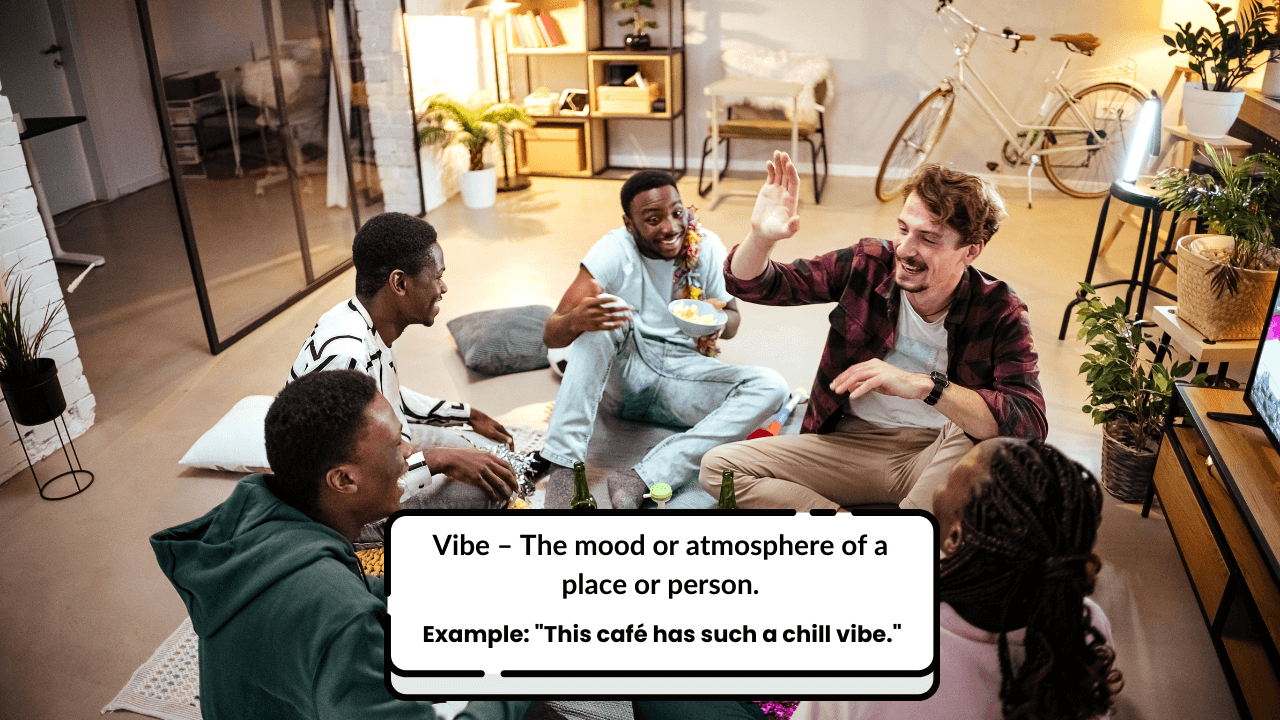
Social interactions often involve unique slang that reflects camaraderie and casualness:
- Bro – A close male friend.
- Example: “What’s up, bro?”
- Fam – Short for family; refers to close friends as well.
- Example: “You’re part of my fam now.”
- Squad – A group of friends.
- Example: “The squad is meeting at the mall later.”
- Hang out – To spend time casually with someone.
- Example: “Let’s hang out this weekend.”
- Vibe – The mood or atmosphere of a place or person.
- Example: “This café has such a chill vibe.”
- Chill – Relaxed or easy-going.
- Example: “He’s super chill; you’ll like him.”
- Clap back – To respond sharply to criticism.
- Example: “Her clap back on Twitter was epic!”
- Throw shade – To subtly insult someone.
- Example: “Did you hear her throw shade at her ex?”
- Lit – Exciting or excellent.
- Example: “That party last night was lit!”
- Turnt – Wildly excited or energetic (often used in party contexts).
- Example: “Everyone was turnt at the festival.”
Also Read – How to Say “I Love You” in French: 80 Romantic Phrases
Internet and Social Media Slang
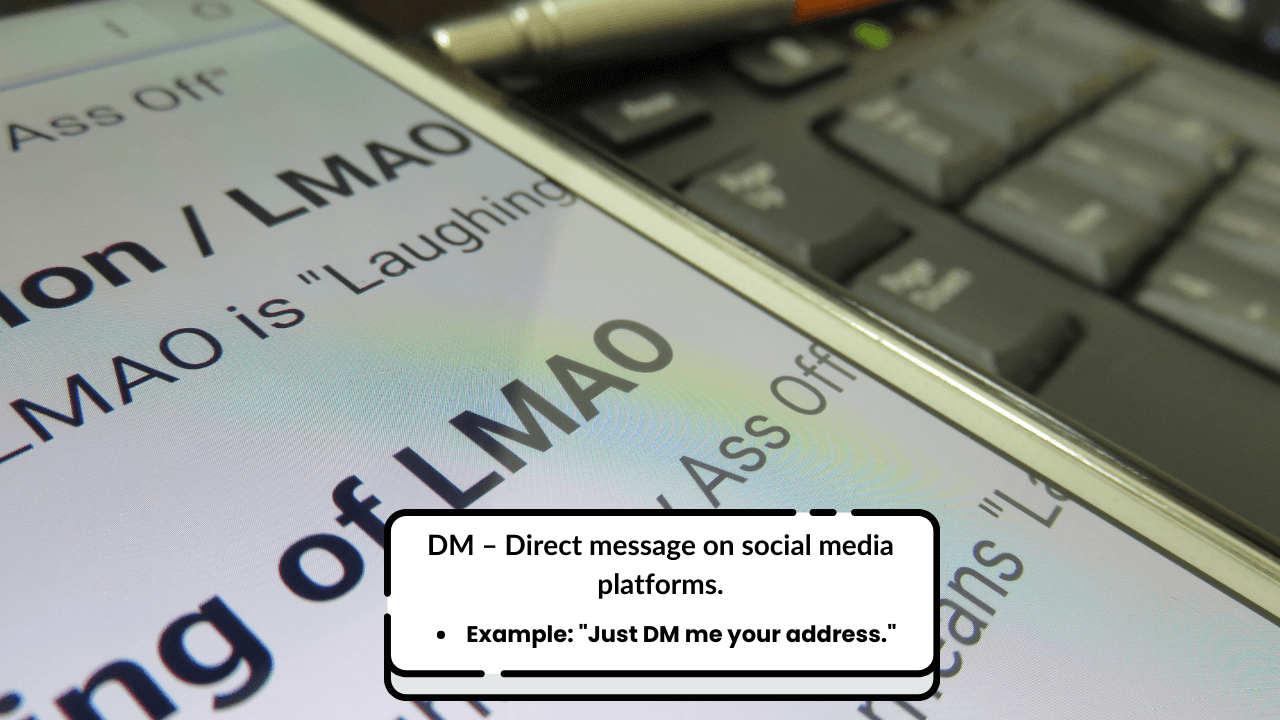
The digital age has given rise to its own set of slang terms:
- Cap/No cap – A lie/truth.
- Example: “No cap, that was the best pizza I’ve ever had.”
- FOMO – Fear of missing out.
- Example: “I have FOMO about skipping the concert tonight.”
- Stan – An obsessive fan of something or someone.
- Example: “I totally stan that new artist!”
- DM – Direct message on social media platforms.
- Example: “Just DM me your address.”
- Ghosting – Abruptly cutting off communication with someone.
- Example: “She ghosted me after our second date.”
- Flex – To show off something in a bragging way.
- Example: “That new car is such a flex!”
- Glow up – A significant transformation for the better (appearance or personality).
- Example: “She had such a glow up after high school!”
- Sus – Suspicious behavior or intent.
- Example: “Why is he being so sus lately?”
- Tea/Spill the tea – Gossip or drama; sharing gossip.
- Example: “What’s the tea on their breakup?”
- Receipts – Proof or evidence (often in arguments).
- Example: “I’ve got receipts to prove it!”
Also Read – 111+ Hilarious English Tongue Twisters For Kids & Adults
Slang for Emotions and Reactions
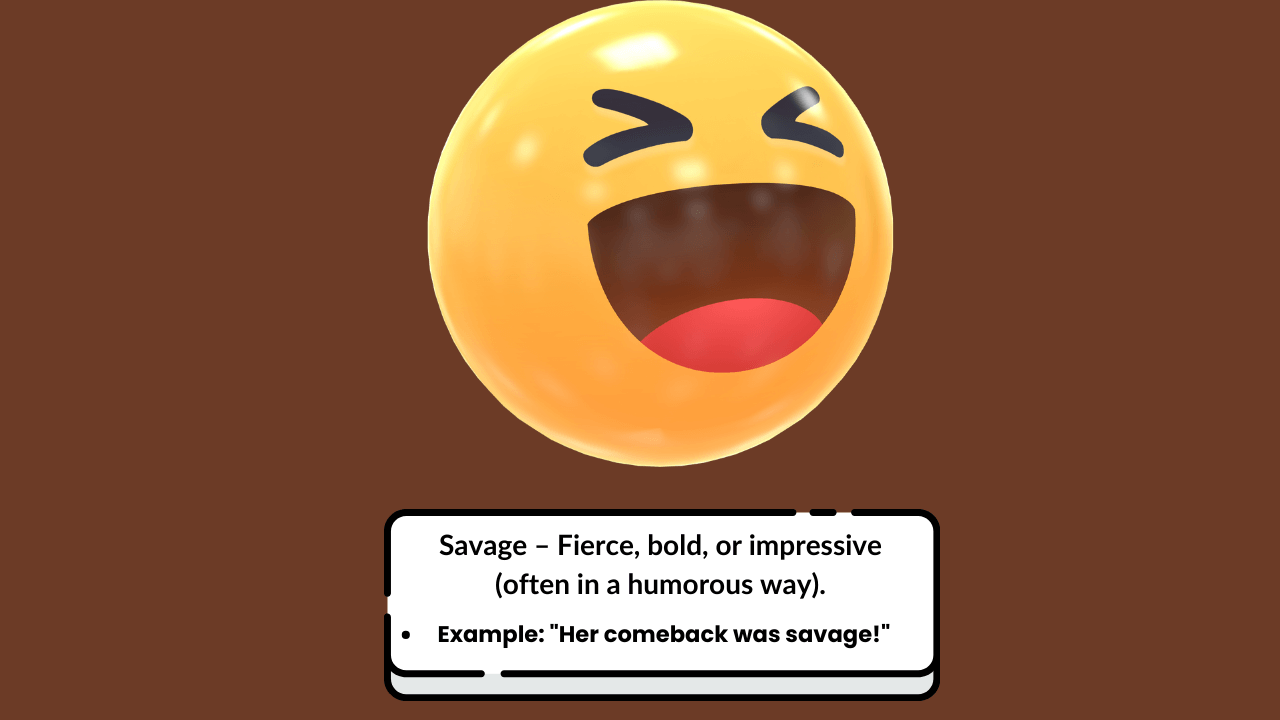
Expressing emotions often comes with its own vocabulary:
- Dead – Something extremely funny or shocking.
- Example: “That meme had me dead!”
- Salty – Bitter or upset about something.
- Example: “He’s salty because he lost the game.”
- Shook – Shocked or surprised.
- Example: “I was shook when I heard the news.”
- Mood – Something relatable that reflects your current feeling.
- Example: “Eating pizza alone—mood.”
- Savage – Fierce, bold, or impressive (often in a humorous way).
- Example: “Her comeback was savage!”
- Extra – Over-the-top behavior or effort.
- Example: “Wearing heels to a picnic is so extra.”
- Hype – Excitement around something.
- Example: “The hype around this movie is insane!”
- Low-key/High-key – Subtle/obvious feelings about something.
- Examples:
- Low-key: “I low-key love this song.”
- High-key: “I’m high-key obsessed with this show.”
- Examples:
- Woke – Being socially aware and informed.
- Example: “She’s so woke about climate change issues.”
- Yikes! – Expression of embarrassment or shock.
- Example: “Yikes! That didn’t go as planned.”
Also Read – How To Say “Good Morning” In Spanish (Beyond “Buenos Días”)
Regional American Slang
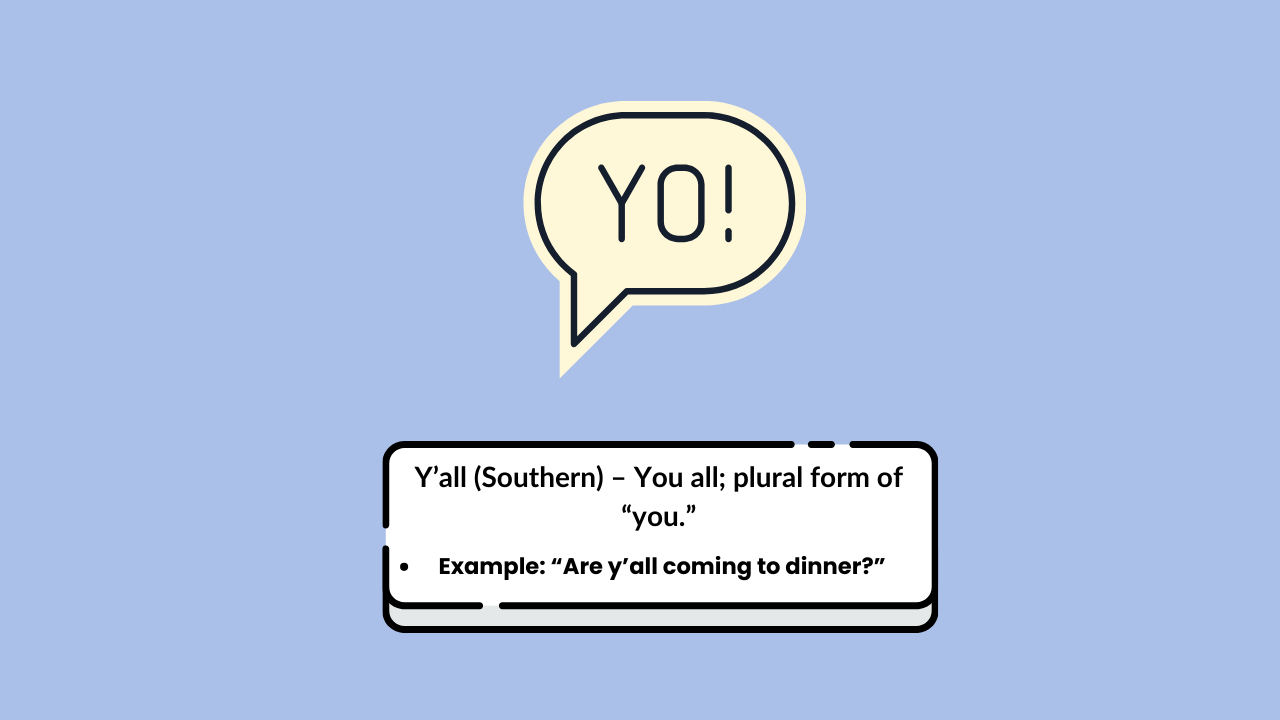
Some slang terms are rooted in specific regions but have gained wider popularity:
- Hella (West Coast) – Very or extremely.
- Example: “That test was hella hard.”
- Y’all (Southern) – You all; plural form of “you.”
- Example: “Are y’all coming to dinner?”
- Pop (Midwest) – Soda or soft drink.
- Example: “Can I get a pop with my meal?”
- Wicked (New England) – Extremely good or impressive.
- Example: “That snowstorm was wicked crazy!”
- Fixing to/Fixin’ to (Southern) – About to do something soon.
- Example: “I’m fixin’ to head out.”
Also Read – Unique Ways To Say Thank You And You’re Welcome In English
Conclusion
If you’ve ever watched an American TV show, scrolled through social media, or chatted with native speakers, you’ve probably come across slang that left you scratching your head. These 110 American slang words and phrases will help you keep up with casual conversations, whether you’re hanging out with friends, exploring new places, or just trying to sound more natural.
Learning slang isn’t just about sounding cool, it’s a great way to connect with people on a deeper level. It shows you understand the culture, the humor, and the little quirks that make everyday conversations feel more authentic.
So go ahead—start using these phrases in your conversations and speak like a native!